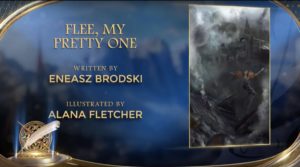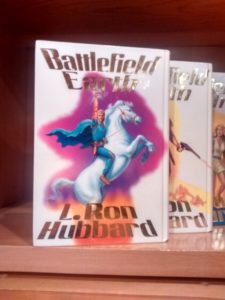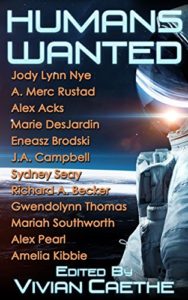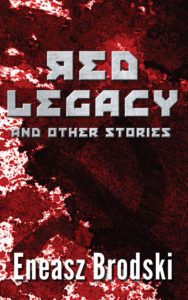 The more I write, and talk with other writers, the more I get the impression there’s two major styles of writing. And no, this isn’t the old Pantser vs Plotter thing. Like all arguments that break a large field into two distinct sides, it lacks nuance and isn’t fully reflective of the world. But it does give us good tools for thinking about the thing.
The more I write, and talk with other writers, the more I get the impression there’s two major styles of writing. And no, this isn’t the old Pantser vs Plotter thing. Like all arguments that break a large field into two distinct sides, it lacks nuance and isn’t fully reflective of the world. But it does give us good tools for thinking about the thing.
Work-style writing. I call it this because doing this style of writing feels like work. The author is consciously and deliberately trying to sculpt something impressive. They struggle with theme and voice. They dredge up their great fears for themselves/their in-group/the future, they incorporate their philosophical outlook on life (hopefully without being preachy), and forge it all into this piece of their psyche that has every bit of emotion and skill they currently possess. They go over it again and again, looking for flaws, tightening things, worrying about every bit. And when they’re done they worry “Will people get what I was trying too say? Am I being too obscure? Too blatant?” This sort of writing is pretty darn pretentious, and every writer doing it not-so-secretly wishes their work will win ALL the awards. The point of this style of writing is in the presentation of an impressive finished product for an admiring audience. There is no point to it without an audience. It’s fulfilling when it works, but it is not inherently fun to do, and it takes immense amount of energy.
Fun-style writing. This is the writer sitting down and just having a good time while writing. This type of writing is a joy to engage in! It’s what many people say writing should be like. All the things mentioned in Work-style may still be present, writing in themes and philosophy and so forth can be really fun! But it’s not the point. If they’re in, great, if not, whatever. There isn’t a ton of worrying about it. The author is greatly amusing themselves by living out this fantastic story/scenario in their mind, and incidentally also doing the extra work necessary to share this fantasy with everyone else who wishes to read it. This is a thing that a writer would do on their own, for fun, even if no one ever saw the result, because there is joy in the process. The finished work is a byproduct, not the goal. Writing the story down still takes time, and skill! But it is more invigorating than draining, and so fun-style writers tend to be far more prolific.
Work-style generally reads slower. Fun-style goes fast, and is snappy. Work-style invites you into the author’s mind. Fun-style invites you to be the author’s friend. Work-style often makes demands of its readers, requiring work on their side as well. Fun-style primarily wants the reader to enjoy themselves.
A writer can do either style of writing, depending on what they wish to work on next. Even a single work can alternate between the two, being mainly fun-style, with patches of work-style here and there. But for the most part, one can tell when a novel is work-style, and when it’s fun-style.
I am primarily a work-style writer. I’ve done fun-style writing before, and it’s just the best damn thing ever. :) Both my Amazing Man stories were just me having a damn good time, writing whatever I thought would be fun and awesome to write next. I gave no fucks at all, aside from amusing myself. Each one took less than a single weekend to write (most of my stories are a month-ish process. Although that’s while holding down a full-time job). The first Amazing Man story was the most fun I’ve ever had while writing, until I wrote the second one and had an even better time!
And yet, I don’t really do that sort of writing. Something about it feels… cheap. Maybe it’s the ingrained puritan work ethic of my parents, saying that doing fun things is lazy and that nothing of value can be created unless laborious suffering is involved. Maybe it really is just a taste thing—I often dislike fun-style novels/stories, and almost never fall in love with them. Whereas I really enjoy work-style works (when they resonate with me, obvs not the majority of them). Or maybe it’s just straight-up old, snobby prejudice.
I don’t begrudge authors writing for fun. Often, even very well-known authors who made their mark writing a great work-style piece will shift to fun-style, because it’s damned fun to do. I certainly don’t blame them. But I wish there was some way to know beforehand that this was a fun work, so my expectations were correctly lowered. That’s probably clarifies a bit why some of my reviews go the way they do. I’m more likely to enjoy work-style, and feel annoyed if the author is just having a good time when I was expecting something more involved.
But when some writers talk about how great it is to write, and others talk about how hard it is to do so, I think this is the primary difference.





 I was recently selected as a winner of the 2017 Writers of the Future contest (2Q, 3rd place)! In addition to a nice cash prize and future publication, this is a fairly well-regarded award for new SF writers, because the organization hires well-known SF authors to act as the final judges. The combination of these two factors leads SFWA (the Science Fiction and Fantasy Writers of America) to count it as a qualifying professional market.
I was recently selected as a winner of the 2017 Writers of the Future contest (2Q, 3rd place)! In addition to a nice cash prize and future publication, this is a fairly well-regarded award for new SF writers, because the organization hires well-known SF authors to act as the final judges. The combination of these two factors leads SFWA (the Science Fiction and Fantasy Writers of America) to count it as a qualifying professional market. I.
I. II.
II. It’s even happened the same way it had previously been built up. Characters that were too nuanced or complex couldn’t survive in the new, Hollywood-simple world. The ones that could be killed off, were. Bye High Sparrow, bye Queen of Thorns.
It’s even happened the same way it had previously been built up. Characters that were too nuanced or complex couldn’t survive in the new, Hollywood-simple world. The ones that could be killed off, were. Bye High Sparrow, bye Queen of Thorns.



